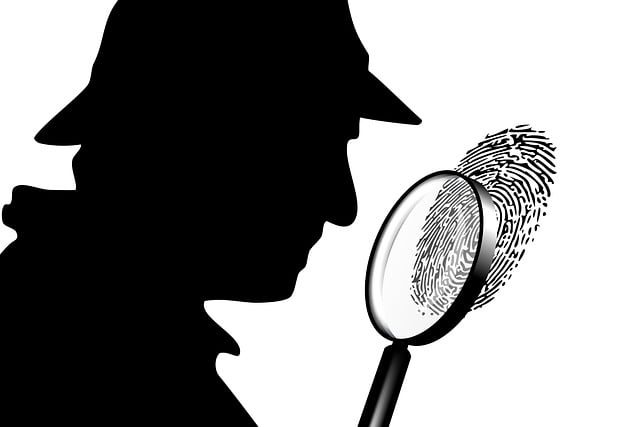When purchasing a used vehicle, it's imperative to conduct a thorough VIN check using authorized databases to verify its authenticity, history, and any past issues like accidents or odometer tampering. This process includes matching the vehicle's VIN with its registration details and license plate number to confirm they correspond, which is vital for preventing fraud such as odometer fraud or buying a stolen vehicle. A detailed report from a credible VIN decoding tool is essential for making an informed decision about the car's true condition, ensuring that it has not been involved in problematic incidents that could affect its safety, value, or resale potential. Additionally, buyers should ensure the dealer provides a VIN authentication report and conduct a License Plate to VIN Matching to confirm the vehicle's legal status. All checks should be done through official or reputable third-party services for accurate information and peace of mind in your transaction.
In recent times, the proliferation of fraudulent vehicle sales has emerged as a significant concern for consumers. As the Federal Trade Commission has warned, savvy buyers must now navigate a landscape rife with deceptive practices, where scammers expertly manipulate Vehicle Registration Validation and License Plate to VIN Matching details. To safeguard your purchase against such deceit, understanding and utilizing a VIN authentication process is paramount. This article delves into the critical steps of car buying, from comprehending VIN authentication to leveraging reliable VIN decoding tools, all aimed at ensuring that the vehicle you’re considering aligns with its official records—a safeguard that protects your investment and peace of mind. Join us as we explore the essential measures to take when purchasing a car to avoid becoming a victim of these schemes.
- Understanding VIN Authentication: Safeguarding Against Fraudulent Car Sales
- The Risks of Overlooking Vehicle Registration Validation
- License Plate to VIN Matching: A Critical Step in Car Purchases
- Identifying Trusted VIN Decoding Tools for Buyers
- Steps to Ensure Your Vehicle's Records Align with Official Documents
Understanding VIN Authentication: Safeguarding Against Fraudulent Car Sales

When considering the purchase of a used vehicle, understanding the importance of VIN authentication is paramount to safeguarding against fraudulent sales. The Vehicle Identification Number, or VIN, is a unique code that serves as a car’s fingerprint, encapsulating critical information about its make, model, year, and history. Potential buyers must verify this number through a legitimate VIN decoding tool to ensure the vehicle’s details align with its official records. This process confirms the car’s true identity, including its manufacturing specifications, previous maintenance records, and any accident history, which scammers might attempt to conceal with altered documents or false information.
The Federal Trade Commission has recently underscored the risks associated with overlooking VIN authentication. Without this verification, buyers are at risk of purchasing vehicles with hidden issues such as odometer tampering, frame damage, or even a stolen vehicle. A proper VIN check should be conducted by utilizing authorized databases and services that can cross-reference the VIN with its corresponding registration information and license plate details. This cross-referencing effectively confirms whether the car’s current state matches its past, ensuring that the buyer is fully informed about what they are investing in. By adopting this due diligence step, consumers can significantly reduce the likelihood of falling victim to deceptive car sales practices and protect their financial and safety interests.
The Risks of Overlooking Vehicle Registration Validation

When considering the purchase of a used vehicle, overlookng vehicle registration validation can lead to significant risks. A car’s history is often concealed by unscrupulous sellers who manipulate records to mask issues such as accidents, flood damage, or odometer tampering. These alterations can make a vehicle appear in better condition than it truly is, misleading potential buyers into making decisions based on false premises. The consequences of such a purchase can be costly, not just in terms of repair expenses but also in the depreciation of the vehicle’s value over time. More importantly, safety could be compromised if the car has been involved in accidents that have weakened its structure or compromised its mechanical integrity.
To mitigate these risks, it is crucial to employ a reliable VIN decoding tool. This service can authenticate the vehicle’s history by cross-referencing the Vehicle Identification Number with official databases. It provides a comprehensive report detailing past ownership, accident history, mileage accuracy, and more. By ensuring that the vehicle’s registration matches its official records, buyers can make informed decisions, confident in the authenticity of their potential purchase. This due diligence not only safeguards the buyer’s investment but also contributes to the integrity of the car market by deterring fraudulent activities.
License Plate to VIN Matching: A Critical Step in Car Purchases

When purchasing a vehicle, it’s imperative to verify its authenticity and history, which is where License Plate to VIN Matching emerges as a critical step in the car buying process. This crucial verification process ensures that the vehicle’s license plate corresponds accurately with its Vehicle Identification Number (VIN). Scammers often exploit loopholes by swapping plates or altering records to make problematic vehicles appear more desirable. By cross-referencing the license plate number with the VIN, buyers can ascertain that the car they are considering has not been reported as stolen, is not a salvage title vehicle, and has a clean title status. This step is essential for safeguarding your financial investment and ensuring the safety and reliability of the vehicle you intend to purchase. A discrepancy in this match could signal potential issues with the car’s history that might affect its value or drivability, thus making it a vital due diligence measure for any prospective car buyer. Utilizing a trusted VIN decoding tool is not just a precaution; it’s an indispensable step in the process of securing a trustworthy vehicle and avoiding the pitfalls of fraudulent car sales.
Identifying Trusted VIN Decoding Tools for Buyers

When purchasing a used vehicle, due diligence is paramount to avoid falling victim to fraudulent sales. A critical step in this process is identifying reliable VIN decoding tools that can provide accurate and comprehensive vehicle history reports. These tools are instrumental in comparing the Vehicle Identification Number (VIN) on the car with its official records, ensuring authenticity. Trusted VIN decoding services typically offer a multifaceted verification process that includes checking against national databases for theft or salvage titles, verifying odometer readings for accuracy, and examining the vehicle’s history for any signs of damage or prior accidents.
Buyers should seek out services that are recognized by credible entities such as insurance companies or official motor vehicle administrations. These services have access to a wide array of databases and can cross-reference various data points, including the VIN, engine number, and frame number against their corresponding records. By doing so, they can confirm whether the vehicle has been reported stolen, is listed as salvage, or has had its odometer rolled back. It’s also advisable to choose services that offer a user-friendly interface and detailed reports, enabling buyers to make informed decisions confidently. With the increasing prevalence of fraudulent car sales, employing a trusted VIN decoding tool is not just an added precaution; it’s an essential step in the vehicle buying process to safeguard your investment.
Steps to Ensure Your Vehicle's Records Align with Official Documents

When purchasing a used vehicle, it is imperative to verify that its records align with official documents to avoid falling prey to fraudulent sales. A critical step in this process is obtaining the Vehicle Identification Number (VIN) and using a reliable VIN decoding service. This tool allows you to check the car’s history against its registered details, ensuring that there are no discrepancies. The National Motor Vehicle Crime Act requires dealers to provide a VIN authentication report confirming the vehicle’s status and history. As a buyer, you should request this report and scrutinize it for accuracy. Additionally, insist on a License Plate to VIN Matching. This step confirms that the license plate number corresponds with the VIN, which is another effective way to ensure the car has not been reported stolen or otherwise flagged by law enforcement. By cross-referencing the VIN with the vehicle’s odometer reading, title history, and any existing liens, you can significantly reduce the risk of purchasing a vehicle with hidden issues. Always remember to conduct these checks through official channels or trusted third-party services to guarantee the integrity of the information provided.
In the wake of escalating fraudulent vehicle sales, this article has underscored the critical nature of VIN authentication. The Federal Trade Commission’s recent alert serves as a clarion call for vigilance in car purchases, emphasizing the importance of Vehicle Registration Validation and License Plate to VIN Matching to unveil a vehicle’s true history. With scammers adept at manipulating documentation, potential buyers must arm themselves with trusted VIN decoding tools. By adhering to the steps outlined in ‘Understanding VIN Authentication,’ ‘The Risks of Overlooking Vehicle Registration Validation,’ ‘License Plate to VIN Matching: A Critical Step in Car Purchases,’ and ‘Identifying Trusted VIN Decoding Tools for Buyers,’ consumers can confidently ensure their vehicle’s records align with official documents, safeguarding their investment against fraud.



